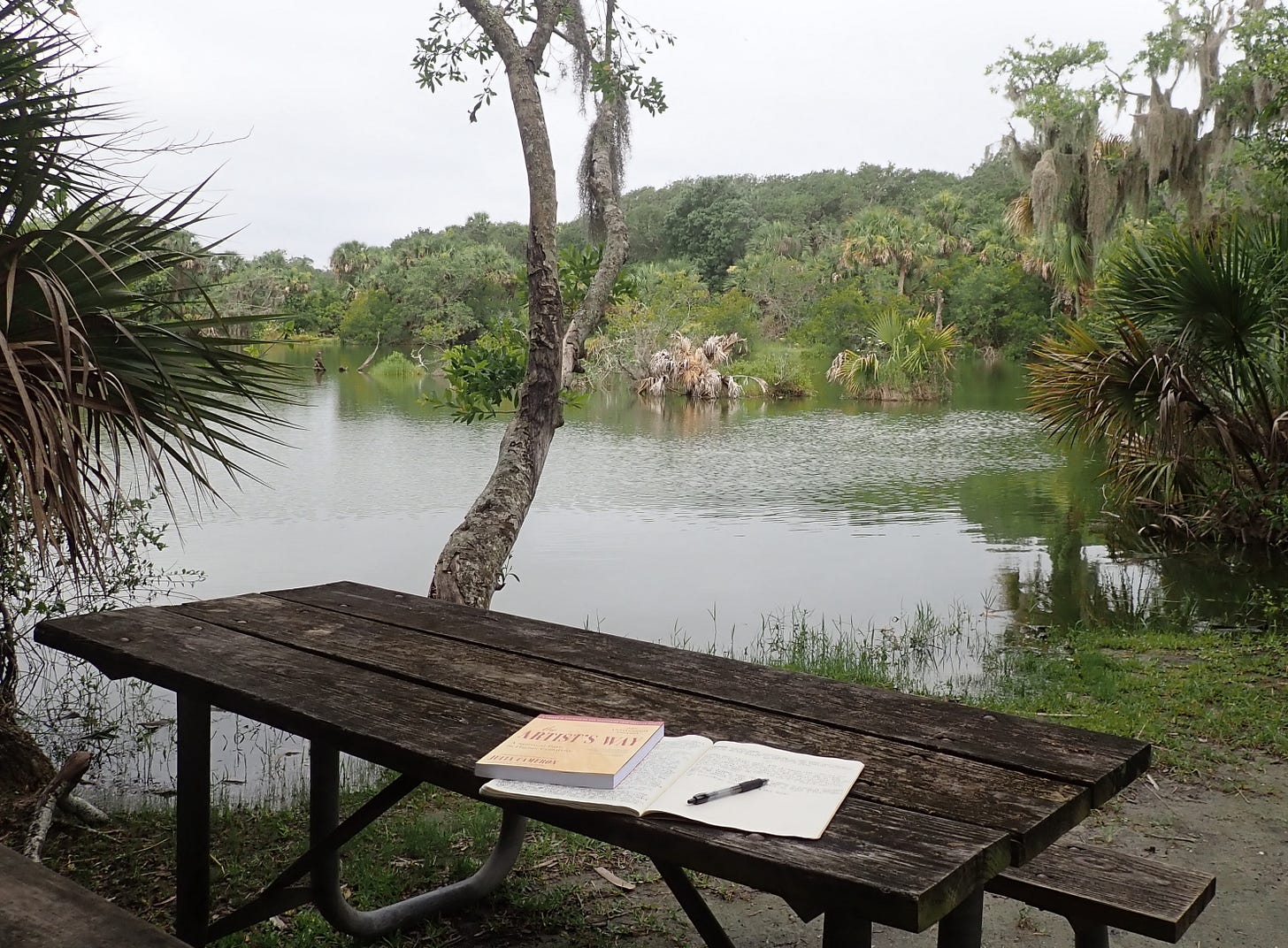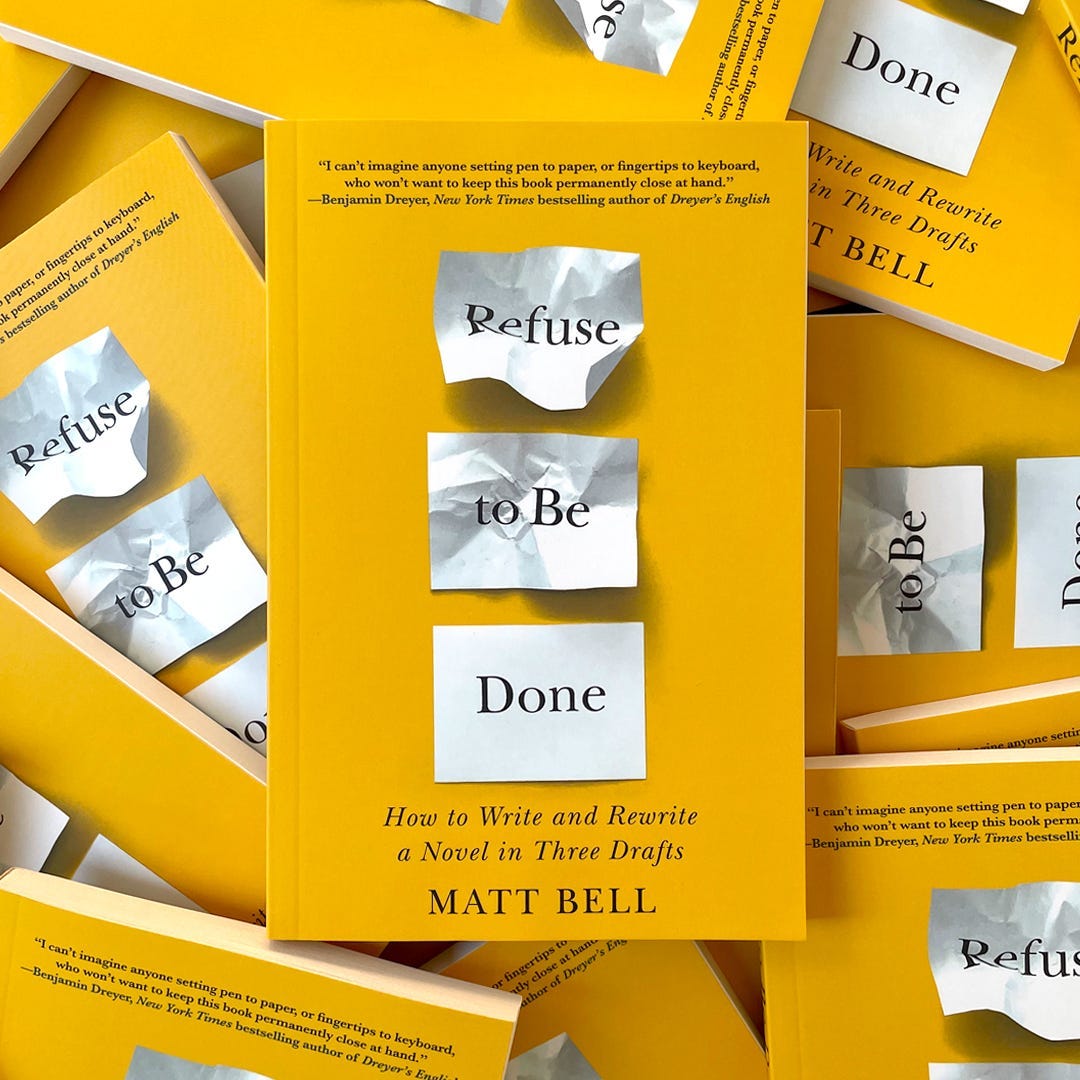The Artist's Way for Writers
Getting the most out of Julia Cameron's book on the creative life.
I did The Artist’s Way this summer. I really stuck with it: all 12 weeks of it.

If you’re unfamiliar with the book, it’s “a course in discovering and recovering your creative self” by Julia Cameron. Originally published in 1992, the book has sold over five million copies.
I impulse-bought one of those copies in 2020, a time when everyone I knew, or so it felt, was working through the book. At the time, though, the book didn’t really speak to me. Why? Oh, I don’t know. Maybe because there was this pandemic happening, which made paying attention to anything for 12 weeks, let alone 12 minutes, feel completely impossible.
But I kept the book on my shelf. And earlier this year, I decided this was the year. I was ready to commit to all 12 weeks. The subtitle of the book is A Spiritual Path to Higher Creativity. That sounded great to me. I wanted to take that path.
Three Key Elements of The Artist’s Way 🔑
weekly reading (20ish pages per week)
morning pages (three handwritten pages every day)
artist dates (one solo date per week)
It’s a deceptively simple framework, and no element is a waste of time. I grew a lot during this book study, and I’m still wrapping my mind and heart around that growth.
You should absolutely work through the book if it interests you. It’s a wonderful tool that helped me prioritize my creative life in a way that feels sustainable. I fully understand why the book has touched so many artists, and you should see for yourself.
Here are my five tips for making the most out of The Artist’s Way.
1. Start reading the book at the dawn of a new season.
I began reading The Artist’s Way during the first official week of summer. The container of a season is so powerful to me. I loved being able to say, “I’m taking the summer to do this work.”
The autumnal equinox is tomorrow: why not begin your book study then?
2. Choose your notebook thoughtfully.
Julia Cameron’s requirement of writing three pages every day is really impactful and not worth skipping: there was something about watching the way my thoughts and feelings took on a beginning, middle, and end when I wrote three full pages.
That said, when choosing your notebook for your morning pages, be realistic about the size of the pages. Some mornings, I got overwhelmed by the task of writing three pages because I started out using a gigantic notebook. My bad! Scaling down the size of pages turned out to be a good move for me.
(Speaking of morning pages: I really like this article about them.)
3. Don’t skip your artist dates!
The artist dates were really, really hard for me to prioritize at first. Setting aside time to write can be difficult enough. Giving myself extra time on top of my writing time to take myself “on a date,” even if it meant spending absolutely no money? I had to work through a surprising amount of guilt and shame around that.
During one of my first weeks of The Artist’s Way, I took myself bird watching and spent the entire hour with my jaw clenched, thinking of all the things I could’ve been doing with that time.
But as the weeks wore on, claiming space to “court my artist,” as Julia Cameron would say, not only proved easier. I also noticed that the space-claiming muscles I’d been working were helping other areas of my life, making it easier for me to set boundaries and advocate for myself. Kind of life-changing!
4. Turn the weekly reading into a ritual.
I wanted my summertime with The Artist’s Way to feel really special, so I developed a ritual for reading the weekly pages. I’d bring a blanket down to the beach every Sunday morning and read them there.
I recommend finding a special time and place for your reading.
5. Choose the tasks in the book that resonate most with you.
Each chapter of The Artist’s Way concludes with a list of tasks to complete. Almost all of them can be done during your morning pages.
Most of the tasks were helpful and engaging, but some of them just didn’t speak to me. I skipped those and still got plenty of value from the rest of the book!
Book Club for Writers
On Sunday, October 29 at 1PM EST, my Book Club for Writers will meet on Zoom to discuss Refuse to Be Done, Matt Bell’s incredible book on drafting and revision.
Who is this book for?
I recommend Refuse To Be Done to anyone who’s curious about writing a book-length work. Sure, the title has the word “novel” in it, but even if you’re interested in working on a different type of writing project, like a memoir or short story collection, you’ll get a ton out of this book. Matt has incredible tips for writers of all stripes.
How do I join the book club meeting?
Become a paid newsletter subscriber to join. Subscribe for the month for just $5, or save 27% and subscribe for the whole year.





